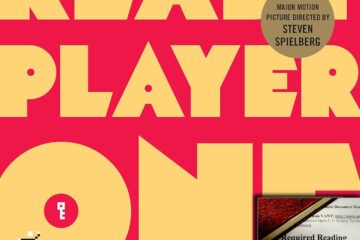Here the rewards of his industry follow with equal steps the progress of his labour; his labour is founded on the basis of nature, SELF-INTEREST: can it want a stronger allurement? Wives and children, who before in vain demanded of him a morsel of bread, now, fat and frolicsome, gladly help their father to clear those fields whence exuberant crops are to arise to feed and to clothe them all; without any part being claimed, either by a despotic prince, a rich abbot, or a mighty lord. Here religion demands but little of him; a small voluntary salary to the minister, and gratitude to God; can he refuse these? The American is a new man, who acts upon new principles; he must therefore entertain new ideas, and form new opinions. From involuntary idleness, servile dependence, penury, and useless labour, he has passed to toils of a very different nature, rewarded by ample subsistence.—This is an American.
After a foreigner from any part of Europe is arrived, and become a citizen; let him devoutly listen to the voice of our great parent, which says to him, "Welcome to my shores, distressed European; bless the hour in which thou didst see my verdant fields, my fair navigable rivers, and my green mountains! If thou wilt work, I have bread for thee; if thou wilt be honest, sober, and industrious, I have greater rewards to confer on thee– ease and independence. I will give thee fields to feed and cloath thee; a comfortable fireside to sit by, and tell thy children by what means thou hast prospered; and a decent bed to repose on. I shall endow thee beside with the immunities of a freeman. If thou wilt carefully educate thy children, teach them gratitude to God, and reverence to that government that philanthropic government, which has collected here so many men and made them happy. I will also provide for thy progeny; and to every good man this ought to be the most holy, the most Powerful, the most earnest wish he can possibly form, as well as the most consolatory prospect when he dies. Go thou and work and till; thou shalt prosper, provided thou be just, grateful and industrious.”
An Excerpt from a Letter from an American Farmer by Sarah Jordan
American Exceptionalism is the idea that America, the brave, is truly different from the rest of the world. America is known as the so-called “black sheep” of the family, except there is no family and the comparison is between countries, governments, cultures, etc. American Exceptionalism also ties in with the American Dream. The American Dream states that anyone can make their wildest envisions come true, as long as they are willing to work for it. J. Hector St. John de Crèvecœur was a Frenchman, who bought into all of these American idealisms. He acclaimed that those who came to America would be much better off due to the fact that they would have land of their own, food for their families, and freedom.
Crèvecœur states that every man who comes to America(women were still seen as property of course in this time period) will have “verdant fields.” In this time period in Great Britain, many who owned the land did not actually wholly own their land. The King would take a certain percentage of profits from each farmer’s land, even if it was a private company. The prospect of actually owning personal property was so intriguing to emigrants traveling to
America. These “fields[would also]feed and cloath” the new American people, which just added to the allurement of America. Lastly, what America brings to the table so vividly is “ease and independence” for all who live there. There are no classes in America. There are no restrictions on how much money one can make or how much fortune one can create for themselves. The biggest selling point Crèvecœur illuminates in this document is the security and comfort that America gives its citizens. America is a special, safe space where people can be whoever they want to be, as long as they work hard and are independent.
Letters from an American Farmer by Mason Firestone
Letters from an American Farmer was written by a French writer St. jean De Crevecoeur sometime in 1782. Crevecoeur authored this essay to try and show off what it was like being an American farmer to other unfamiliar countries. The essay was written 7 years before the American Revolutionary war about a farm new Orange County, New York. It is told from the perspective of a made-up character, and each letter mentions different ways of life in the British colonies of America.
In the first few sentences of the first letter, the character references the fact that “he sees the industry of his native country displayed in a new manner” which is essentially saying that the British colonies of America are going through the early stages of industrialization (Crevecoeur). The text mentions “decent houses, good roads, orchards, meadows, and bridges, where an hundred years ago it was all wild, woody, and uncultivated” and as a farmer who spends most of their days outside on the farm, he is not familiar with the more civilized and urban environment (Crevecoeur). The American farmer, once from Great Britain is now in this new and confusing environment but is adapting very well. He is already succumbing to the “American” stereotypical belief that “we are the most perfect society now existing in the world” because there are no Kings, Queens, Princes, or Princesses commanding them and telling them their every decision (Crevecoeur). The farmer is still discovering new things about America as time goes on, things such as the original descent of the citizens and how much of the continent has not yet been discovered by Europeans. Crevecoeur tries to make a point that once the farmer moves to America, he is “leaving behind him all his ancient prejudices and manners, receives new ones from the new mode of life he has embraced” (Crevecoeur).
All in all, the essay written St. Jean De Crevecoeur was to make a point of how different life in America is compared to life in any other European country. Whether it is a new environment, a different way of rule, or overall, a new lifestyle. Crevecoeur made a strong point when he released this essay, and it shows off how different living in America truly is.


